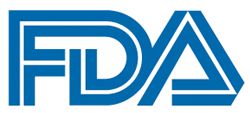Gilteritinib Granted FDA Approval for Treatment of FLT3+ AML
Gilteritinib has been approved by the FDA for the treatment of adult patients with <em>FLT3</em> mutation–positive relapsed or refractory acute myeloid leukemia.

Gilteritinib (Xospata) has been approved by the FDA for the treatment of adult patients with FLT3mutationpositive relapsed or refractory acute myeloid leukemia (AML).
The FLT3 inhibitor was approved based on results from the ongoing phase III ADMIRAL study, which compared gilteritinib with salvage chemotherapy in adult patients withFLT3-positive relapsed/refractory AML.
Gilteritinib received a Fast Track designation from the FDA in October 2017 for use in this setting. The designation, which is designed to accelerate the development, review, and approval of drugs that treat serious and life-threatening conditions, was based on early-stage research with the FLT3 inhibitor.
In results from a phase I/II dose-escalation (n = 23) and dose-expansion (n = 229) study published inThe Lancet Oncology, investigators concluded that the maximum-tolerated dose of gilteritinib was 300 mg daily and determined that the treatment was generally well tolerated. Among patients included in the safety analysis (n = 252), the most common grade 3/4 adverse events (AEs) were febrile neutropenia (39%), anemia (24%), thrombocytopenia (13%), sepsis (11%), and pneumonia (11%).
The most common treatment-related adverse events AEs were similar to those associated with other AML drugs: diarrhea, fatigue, elevated aspartate aminotransferase, and increased alanine aminotransferase. Ten percent of patients required dose reductions, most commonly for diarrhea (1%) or fatigue (1%).
Serious AEs were relatively rare. The most common (≥5%) included febrile neutropenia (39%), sepsis (14%), pneumonia (11%), acute renal failure (10%), pyrexia (8%), bacteremia (6%), and respiratory failure (6%). Only febrile neutropenia, acute renal failure, pyrexia, sepsis, and bacteremia were determined to be treatment-related.
From October 2013 to August 2015, a total of 265 patients enrolled in the study. By November 2015, 88% had discontinued treatment and 12% remained on-study. Median treatment duration was 25.9 weeks.
Investigators locally confirmed internal tandem duplication mutations in FLT3 in 162 patients at screening. Thirteen patients had a point mutation in the D835 codon and 16 had both types ofFLT3mutation. All 31 patients who remained on treatment after November 2015 had an internal tandem duplication mutation inFLT3.
Patients in the dose-escalation phase were assigned to 1 of 7 gilteritinib daily dosing regimens, from 20 mg to 450 mg. Investigators established the 300 mg per day schedule as the maximum-tolerated dose after 2 of 3 patients in the 450-mg cohort experienced dose-limiting grade 3 diarrhea and grade 3 elevated aspartate aminotransferase.
Of 75 patients who achieved a composite complete remission, 2 (1%) received the 20 mg/day dose, 7 (3%) received the 80 mg/day dose, 27 (11%) received the 120 mg/day dose, 36 (14%) received the 200 mg/day dose, and 3 (1%) received the 300 mg/day dose. The median duration of response was 17 weeks (95% CI, 14-29).
The research team observed antidisease activity at all dose levels. Of the 249 patients included in the full analysis, 40% had a response to treatment including 19 (8%) who had a complete response, 10 (4%) had complete remission with incomplete platelet recovery, 46 (18%) had complete remission with incomplete hematological recovery, and 25 (10%) had partial remission.
Concentrations in plasma of gilteritinib after oral daily dosing were generally dose-proportional and showed substantial accumulation until steady-state levels at treatment day 15. Investigators noted potent target inhibition at all dose levels, prompting expansion of all dose cohorts ranging from 20 mg/day to 300 mg/day.
Exposure-related inhibition of FLT3 phosphorylation increased along with increasing gilteritinib concentrations in plasma. Most patients receiving a daily dose of 80 mg or higher had at least 90% of FLT3 phosphorylation inhibition by day 8. In-vivo inhibition of FLT3 occurred at all dose levels.
Reference:
Perl AE, Altman JK, Cortes J, et al. Selective inhibition of FLT3 by gilteritinib in relapsed or refractory acute myeloid leukaemia: a multicentre, first-in-human, open-label, phase 12 study.Lancet Oncol.2017;18:1061-1075.